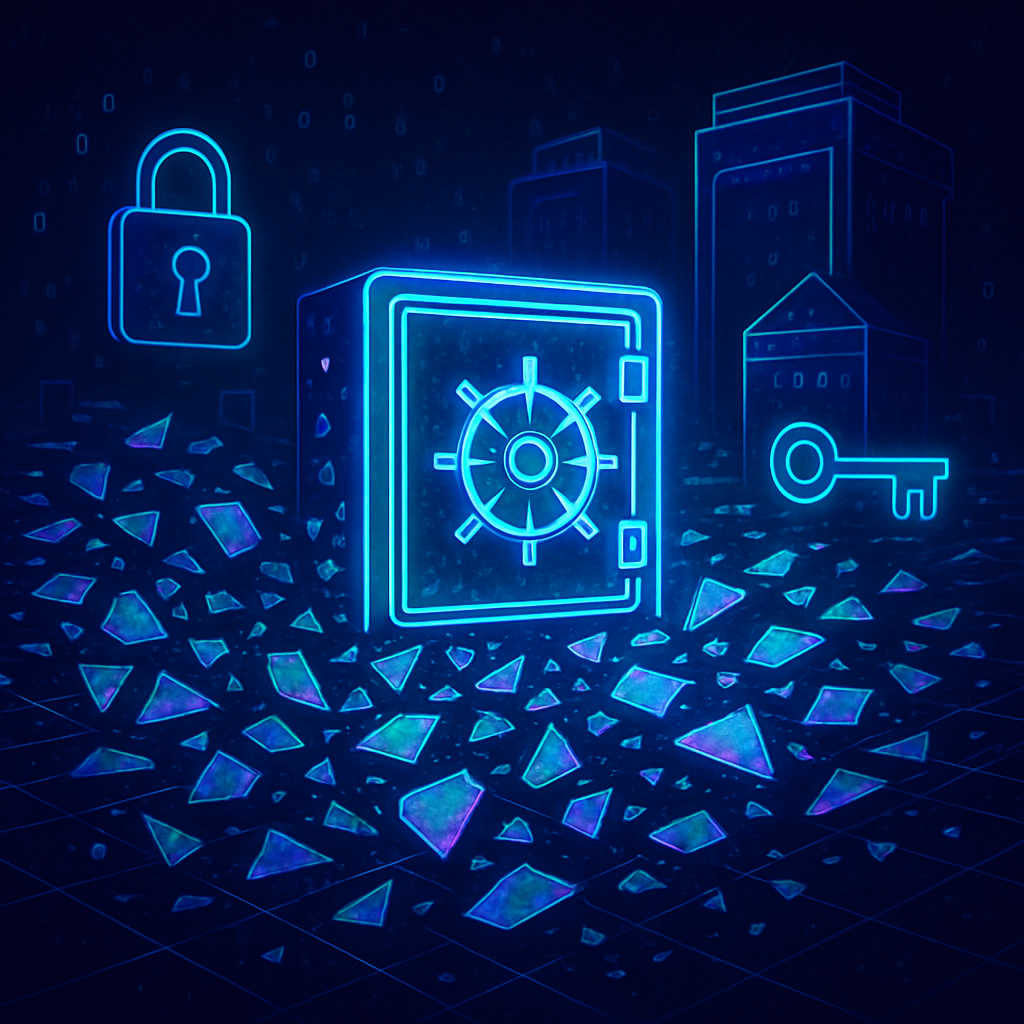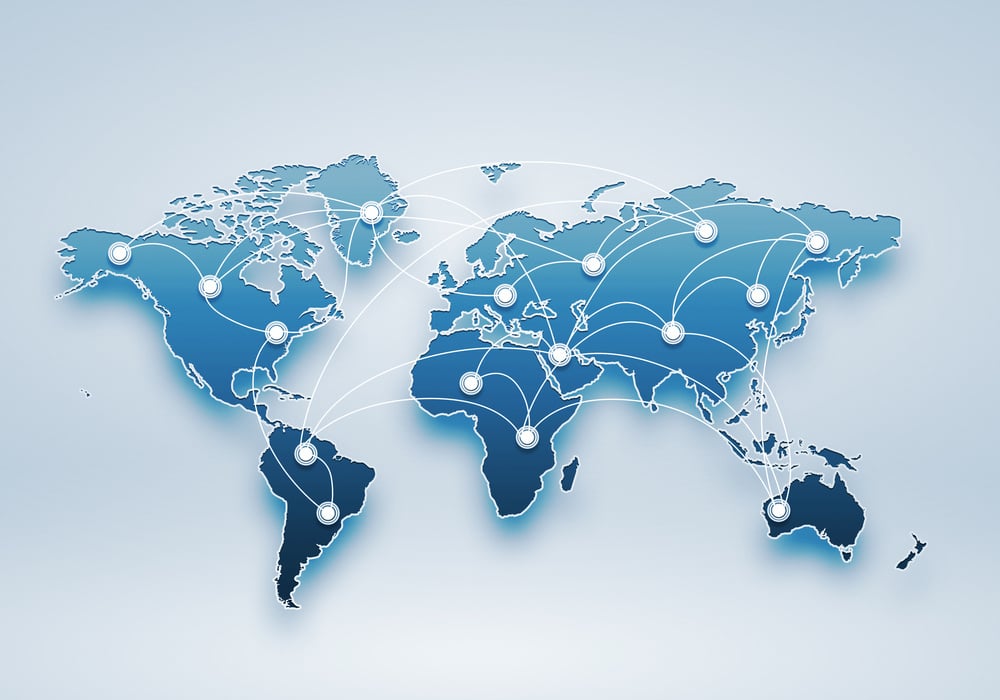How To Address Your Customers’ Data Security Requirements
Data protection has become a critical concern for businesses today. Company partnerships and collaborations often involve the exchange of sensitive data, making it imperative for organizations to establish robust data security measures.
At ShardSecure, we often hear about B2B customers and partners seeking assurance from companies about the protection of their valuable information. These B2B customers want to know how their sensitive data will be safeguarded by the company in question, with a particular emphasis on encryption and other security protocols.
Today, we’ll explore the increasing demand for strong data protection practices. We’ll also discuss the key features that companies are seeking to ensure the security of their sensitive data.
Widespread data sharing leads to greater data security needs
In our interconnected landscape, it’s increasingly common for companies to share data with a wide range of providers, vendors, and other partner companies. More and more, we’re seeing that the need for strong data security transcends traditional industry boundaries. Here are a few real-life examples from different sectors.
Service provider for financial services
Imagine you’re a service provider working for a financial institution. Financial institutions are often highly regulated and, as one would expect, very concerned about the security of their customers’ data. Therefore, service providers are often expected to adhere to a stringent set of security requirements.
As a service provider, you will need to demonstrate equivalent encryption practices and access controls to prove that customer data will remain confidential and protected from unauthorized access. Generally, service providers will also need to produce a SOC 2 audit report to illustrate their data security posture and help financial services companies make sure their requirements are being met.
Original equipment manufacturer for the automotive industry
As an OEM of automobile parts, you are provided intellectual property (IP) by automobile manufacturers, including methods, designs, and other sensitive product information. Since auto manufacturers are aware that their sector experiences a high number of cyberthreats, they tend to be very concerned about the risks of sharing proprietary information. They often inquire about an OEM’s data encryption practices to ensure that their IP is safeguarded throughout the production process.
Software provider for healthcare providers
Suppose you’re a SaaS provider whose software solution is entrusted with handling patient data. Healthcare providers will typically require assurance about how your SaaS solution protects sensitive patient information and ensures compliance with privacy regulations like HIPAA and third party assessments like SOC 2. They may also ask about additional controls and processes you’re using to protect unregulated healthcare data.
Across all these scenarios, the common thread is the requirement for robust data security practices. Any time that Company A shares sensitive data with Company B, the topic of data security will come up.
Let’s dive into the top features that B2B customers are looking for when they ask companies for strong data protection.
What features should you look for in a data security solution?
As we described in our recent post on SOC 2 compliance, it’s hard to understate the value of strong, well documented data security practices to enhance customer trust and drive strong partnerships.
Because the need for data protection is so widespread across different industries, there’s no one-size-fits-all security solution. That said, we believe companies are most successful with data protection solutions that address the following key requirements.
1. Advanced data security
The first requirement is simple and non-negotiable: You need to protect your data, and you need to protect your customers’ data. But how you achieve that protection is much more complicated, and some solutions are more suited to meeting complex, evolving threats than others.
The majority of business customers will request that you encrypt their data in your environment. Depending on your architecture, this request can be as easy as clicking a checkbox or as difficult as rearchitecting your entire software stack. However, most customers will also require cryptographic tenant separation, which is generally not supported out-of-the-box in your infrastructure.
Additionally, customers will want to make sure that your data security protects not just structured data but also unstructured data, which is notably overlooked by most solutions in the encryption space. Companies should focus on implementing solutions that can effectively secure this type of data against the constantly evolving threat of cyberattacks — without impacting existing data and user workflows.
2. Simple processes for securing data
While it’s vital to implement stringent data security measures, it’s equally important to ensure that these measures do not complicate or disrupt daily operations. After all, employees are key to maintaining strong data security, and introducing overly complex procedures is likely to result in errors and vulnerabilities.
Instead, companies should look for data security solutions that seamlessly integrate into existing workflows without causing disruption to users. These solutions should be transparent to both end users and the underlying systems, and they should offer largely frictionless deployment, integration, and maintenance.
3. Low management burden
The right data security solution shouldn’t burden IT staff or require extensive resources for maintenance and management. Instead, it should have a very minimal impact on operations teams. It should also integrate seamlessly with existing infrastructure and applications, minimizing the need for complex configurations or extensive changes to the IT environment.
This is in contrast to solutions that require constant attention, like data loss prevention (DLP) tools, data discovery, key rotation, and other high maintenance technologies. The goal is to strengthen security without adding unnecessary complexity, increasing workloads, or requiring significant team resources.
4. Support for regulatory compliance
Compliance with various data privacy regulations is crucial for you and your customers. While some of these regulations — like Schrems II and the GDPR — are mandatory, others are optional and can help facilitate smoother due diligence processes for business relationships. For instance, third-party assessments like the AICPA’s SOC 2 provide better transparency on how data is handled and ensure mutual trust among business partners. If your company can demonstrate that it provides strong data security through reports like SOC 2, you’ll be able to close deals more quickly and smoothly.
5. The freedom to focus on business goals
While data security is paramount for protecting sensitive information, remember that it’s ultimately serving another goal: your company’s ability to focus on its core business objectives. An effective data security strategy will accomplish several things at once:
- It will protect a company from cyberattacks and outages.
- It will allow a business to allocate its resources and attention to strategic initiatives that drive revenue growth.
- It will empower organizations to drive innovation, pursue growth opportunities, and inspire trust among customers and partners.
How ShardSecure can help
ShardSecure’s platform offers several benefits to help you meet customer and partner data security requirements.
First, we offer an innovative alternative to traditional encryption technologies with our advanced file-level protection. The ShardSecure platform maintains the security, privacy, and resilience of unstructured data on-premises, in the cloud, and in multi- and hybrid-cloud environments, keeping it safe from unauthorized access.
Our technology also offers easy plug-and-play implementation without unnecessary changes to employee workflows. Data can be accessed and moved easily, and only a few lines of code change are required for integration.
Because the ShardSecure platform appears and behaves like storage to other applications, companies can integrate it into their existing security workflows without redeveloping their architecture or adding to their operation team’s workload.
To learn more, take a look at the detailed white paper on our technology, or get in touch with us today.
Sources
Summary of the HIPAA Security Rule | HHS.gov
Employees Are Key to Curbing Data-Breach Risks | SHRM
Data Loss Prevention Best Practices and Software | Hack Control
What Is Key Management? How Does Key Management Work? | Encryption Consulting







